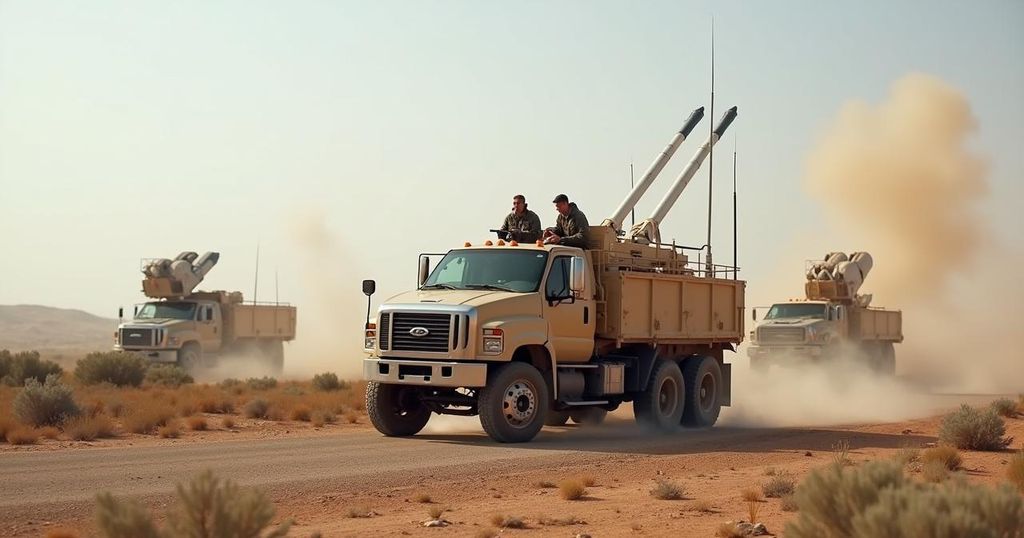Intensifying Conflict: US Deploys Thaad System to Israel Amid Hezbollah Strikes
The Israel-Lebanon conflict intensifies as a Hezbollah drone attack kills four Israeli soldiers, prompting the U.S. to deploy a Thaad missile system to Israel. Netanyahu urges the withdrawal of UN peacekeepers amid rising tensions, as airstrikes in Gaza result in additional civilian casualties. UN warns attacks on peacekeepers may constitute war crimes.
Tensions continue to escalate in the Israel-Lebanon region as a recent Hezbollah drone attack on an Israeli military base near Binyamina resulted in the deaths of four Israeli soldiers and severe injuries to seven others. The Iran-backed group justified this action as retaliation for recent Israeli airstrikes in Beirut that claimed the lives of 22 individuals. In response to the deteriorating security situation, the United States announced the deployment of a Terminal High Altitude Area Defense (Thaad) battery to Israel, accompanied by military personnel to operate the system. The Pentagon emphasized this decision as reaffirming America’s unwavering commitment to Israel’s defense amid threats from Iran. Simultaneously, Israeli Prime Minister Benjamin Netanyahu called for the immediate withdrawal of UN peacekeeping forces from southern Lebanon, addressing concerns over their effectiveness as Hezbollah engages in attacks against Israeli targets. The United Nations has condemned attacks on peacekeepers, warning that such actions may amount to war crimes, especially following gunfire that injured five peacekeepers, exacerbating calls for immediate protective measures for these personnel. In related developments, renewed Israeli airstrikes targeted locations in Gaza, resulting in casualties, including at least 20 deaths from an attack on a school sheltering displaced Palestinians. Israel justified these military actions as necessary to target militant infrastructures, blaming civilian casualties on Hamas’s strategy of operating within populated areas. Amid these ongoing conflicts, the situation remains highly volatile, with increased military engagements and international responses complicating the already fragile peace in the region.
The ongoing conflict between Israel and Hezbollah has seen significant military action, particularly since the onset of violence escalating from the war in Gaza. Hezbollah’s recent drone strike represents one of the deadliest engagements of this period. The security dynamics in the region have prompted deeper involvement from international powers such as the United States, which has begun deploying advanced defense systems to enhance Israeli military capabilities. Concurrently, UN peacekeepers have faced increasing threats in Lebanon, raising concerns over their safety and operational effectiveness amid ongoing hostilities. The actions taken by various governments and militant groups reflect the complex interrelations and historical grievances underlying this multifaceted conflict.
In summary, the situation in the Israel-Lebanon region remains critical, characterized by heightened military involvement from both local and international actors. The U.S. deployment of defense systems underscores the gravity of threats faced by Israel, while Hezbollah’s aggressive actions continue to spur retaliatory responses. Calls for the protection of peacekeepers by the United Nations signal the urgent need for international diplomatic efforts to prevent further escalation and to safeguard civilian populations affected by the conflict. The intertwining of military actions and humanitarian impacts highlights the challenges ahead in restoring stability to a region entrenched in prolonged conflict.
Original Source: www.independent.co.uk




Post Comment